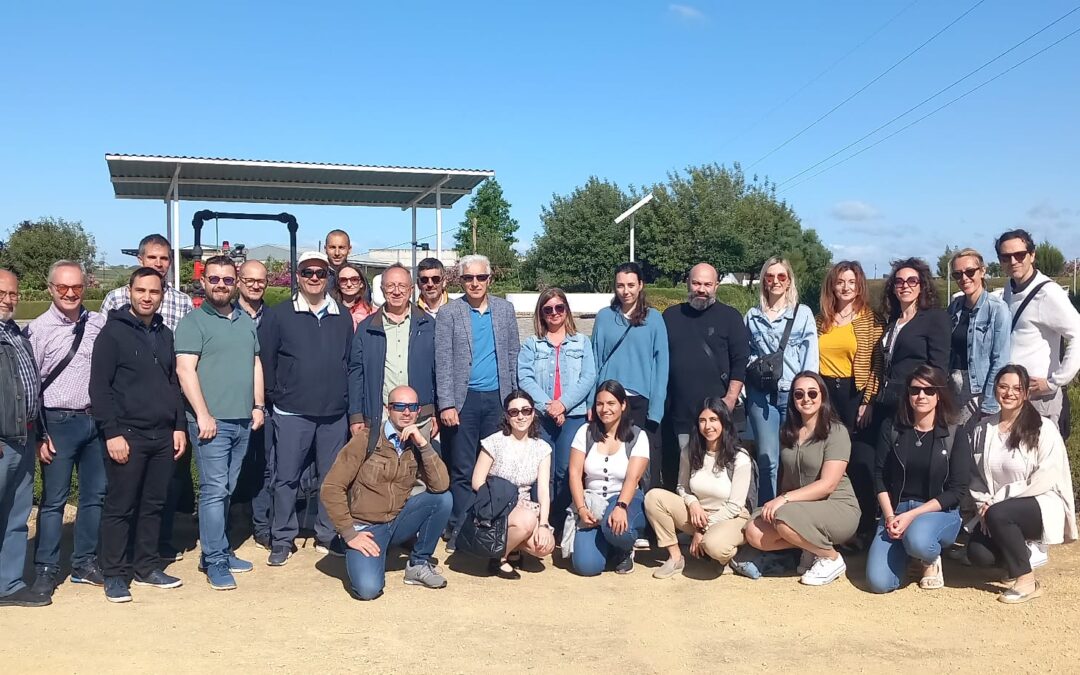The NATMed project consortium has met this week at the Consejería de Agricultura, Pesca, Agua y Desarrollo Rural de la Junta de Andalucía, in Sevilla, to assess the progress of the project and, in particular, of the Spanish Case Study and the status of the Nature-based Solution (NBS) that have been implemented there for the improvement of water management and the water cycle.
During the visit, it was possible to visit the case study of the project, located in the Experimental Centre for New Water Technologies (CENTA) in Carrión de los Céspedes, Sevilla, in order to learn about the operation of the Living-Lab and the wastewater treatment plant using artificial wetlands. Also, during this meeting, two new members were welcomed to the consortium, the University of Cagliari and the University of Western Macedonia.
The project started in May 2023 in order to improve the water cycle in the Mediterranean region and to cope with scarcity and seasonality of water resources through various Nature-based Solutions. The central objective of the project, coordinated by CARTIF, is to optimise water management and related ecosystem services through the combination of NBS in existing water infrastructures in five Mediterranean coastal countries: Spain, Italy, Greece, Turkey and Algeria.
El project began to take its first steps at the end of September 2023. On this occasion, the team visited the solutions implemented in Aborea (Italy) together with the Forest Infiltration Area and the activities to be developed within the framework of the project.
A few months later, in February 2024, the consortium met again in Seville to discuss the Spanish Case Study. This was the second co-design session of the project in which the topics focused on the Spanish case were reviewed. During this session, the first challenges of agriculture in a context of drought, water reuse for irrigation from an academic point of view, the different technologies of water reuse, of the role of the NBS in water reuse were presented.
The NATMed project has a duration of three years. The NATMed project consortium is composed of CARTIF, Environment and Water Agency, Social Climate, Tero PC, Environmental Center of Region of Western Macedonia, University of Sassari, Demir Enerji, University of the Aegean, Izmir Institute Technology, SBNCLIMA, Research & Scientific Technical Center Sur Les Régions Aride, Municipality of Bozcaada, the University of Cagliari and the University of Western Macedonia.
